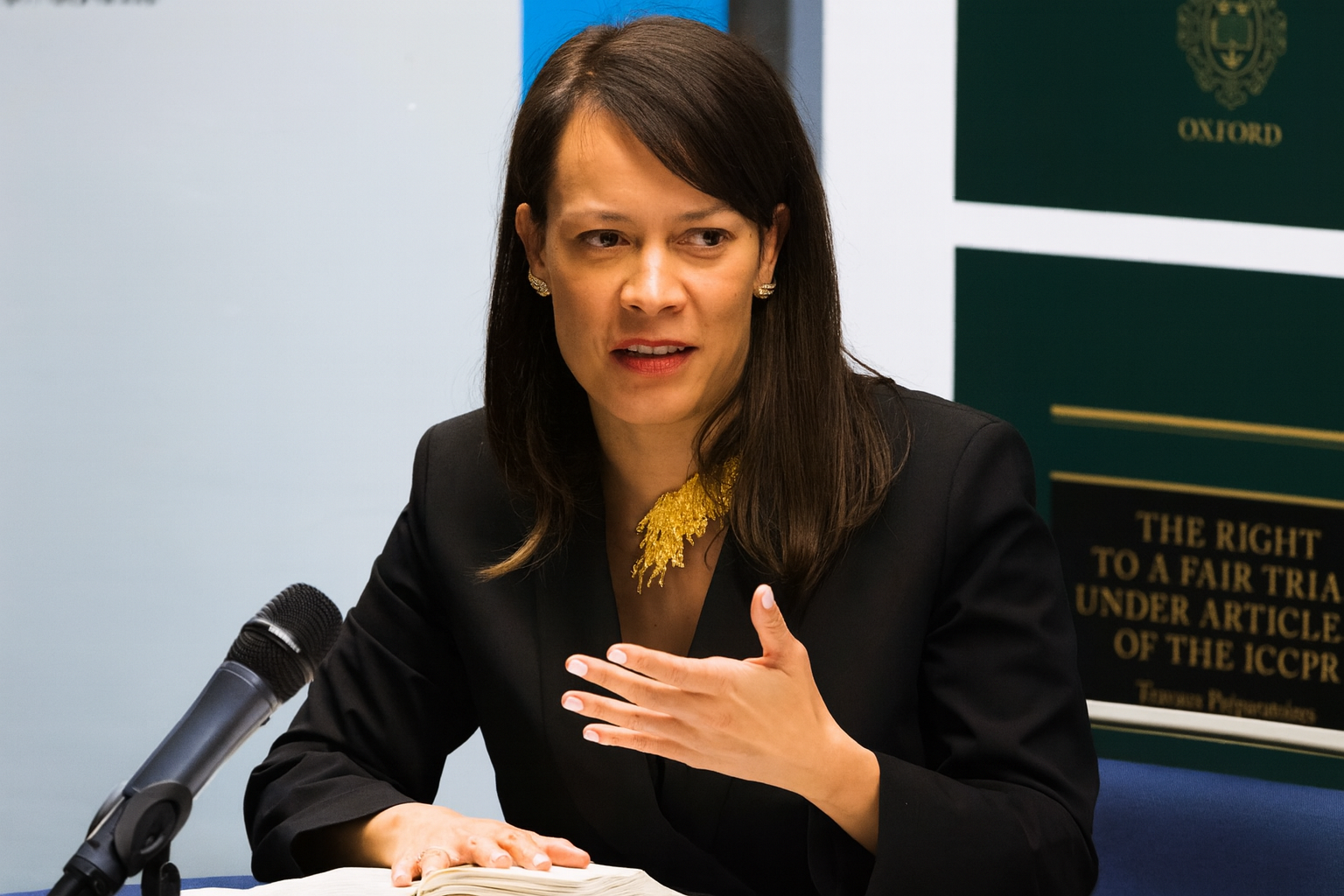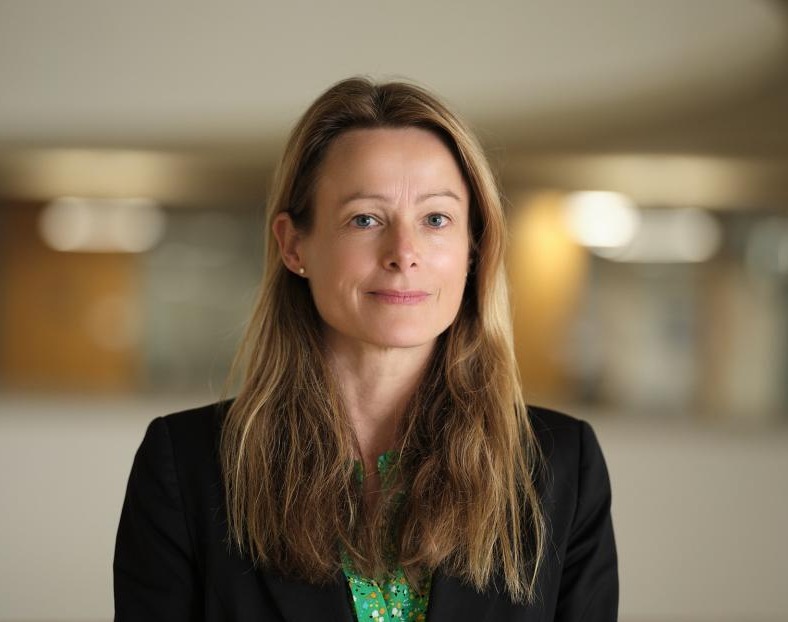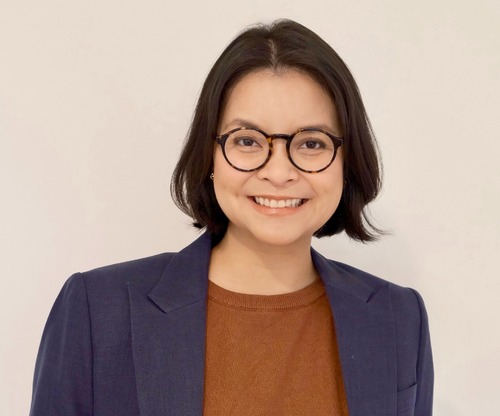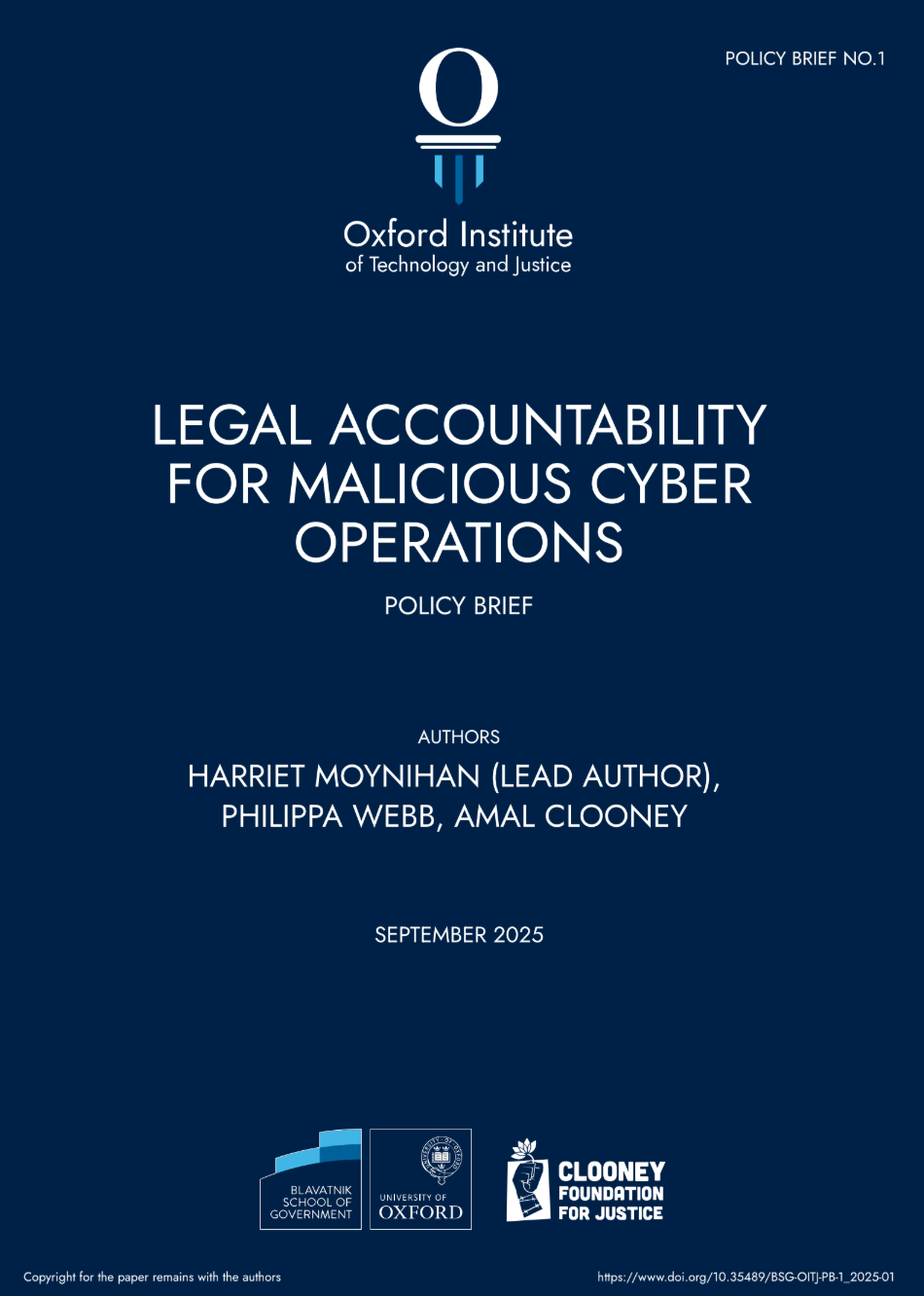Accountability
The Institute conducts research, promotes dialogue and formulates policy proposals to advance accountability in the digital age, particularly in the context of international law. This pillar of our work focuses on two key strands: promoting accountability for State-sponsored cyber operations and for cybercrime, and the identification and development of best practices in obtaining, handling and deploying digital evidence for use in accountability processes.

The Institute has published its first Policy Brief on Legal Accountability for Malicious Cyber Operations as part of our new Policy Paper series. The Brief reviews States’ traditional political or diplomatic responses to cyber operations and examines legal accountability options such as fact-finding, conciliation, mediation, arbitration, and inter-State litigation, as well as the possibility of prosecutions for domestic or international crimes. Future Policy Briefs will develop recommendations on the use of current and new legal mechanisms to increase accountability for cyber operations.
-
We have contributed to the forthcoming Tallinn Manual 3.0 on the International Law Applicable to Cyber Operations, providing comments on the peaceful settlement of cyber disputes.
-
In parallel, the Institute is working with partners to improve how digital evidence is obtained, preserved, and used in accountability processes. We are mapping how international and domestic courts handle digital evidence in criminal proceedings, and will contribute a chapter on The Use of New Technologies to Manage Digital Evidence to the forthcoming Research Handbook on International Criminal Evidence (Elgar, 2026).
-
The Institute is collaborating with the Oxford Process on International Law Protections in Cyberspace on its research agenda, including convening the next session in Oxford in 2026.
Our team

Director and Professor of Public International Law
Philippa Webb

Philippa Webb
Director and Professor of Public International Law
Philippa Webb is the Co-Founder & Director of the Oxford Institute of Technology and Justice. She is also Professor of Public International Law at the Blavatnik School of Government, and fellow of Exeter College, Oxford.
Her research interests span all of Public International Law, with particular expertise in international dispute settlement, human rights, international organizations law, international humanitarian law and international criminal law. She has been described as “the foremost expert on state immunity”. Her approach is to engage in comprehensive, often collaborative, research that informs and improves decision-making and contributes to better outcomes for the international community. Her current research concerns how national and global justice systems can support flourishing societies and uphold fundamental rights.
Philippa has extensive experience in international and national courts, with prior roles including Special Assistant and Legal Officer to Judge Rosalyn Higgins GBE QC during her Presidency of the International Court of Justice and legal adviser to the Chief Prosecutor at the International Criminal Court. She is a barrister at Twenty Essex and appointed to the UK Attorney-General’s Public International Law Panel of Counsel. She regularly appears as counsel and advocate before the International Court of Justice, the European Court of Human Rights, the International Tribunal For the Law of the Sea, inter-State arbitral tribunals and the UK Supreme Court.
Her publications include: Freedom of Speech in International Law (2024, chapters on insulting speech and false speech, Amal Clooney & Lord David Neuberger KC, eds), The Right to a Fair Trial in International Law (2021, with Amal Clooney) Oppenheim’s International Law: United Nations (2017, with Dame Rosalyn Higgins GBE KC, D Akande, S Sivakumaran and J Sloan), The Law of State Immunity(2015, with Lady Fox KC), International Judicial Integration and Fragmentation (2012, 2015). Her research has been funded by the British Academy, the Balzan Foundation, UNESCO, and the Nuffield Foundation and has been used by the United Nations to develop training for trial monitors around the world. Her scholarship been cited by the leading national courts in the United Kingdom, Canada, Germany, Australia and South Africa and has twice been awarded the top prize in international law publishing – the American Society of International Law’s Certificate of Merit.
Philippa was previously Professor of Public International Law at King’s College London and founding Co-Director of the Centre for International Governance and Dispute Resolution. She has held visiting positions at Columbia University, the Graduate Institute in Geneva, the Vienna Diplomatic Academy and Université Paris Nanterre. In 2023, she was the Director of Studies (English speaking section) of the Hague Academy of International Law for its centenary edition.
Philippa is a founding Board Member of the Clooney Foundation for Justice. She is a member of the Public International Law Advisory Panel of the British Institute of International & Comparative Law, an advisor to the American Law Institute’s Restatement of the Foreign Relations Law of the United States, a legal expert to the Commission of Small Island States on Climate Change and International Law, an advisor to the Tokyo International Law Seminar, and a member of a working group of the Committee of Legal Advisers on Public International Law of the Council of Europe. She has served on the Task Force on Accountability for Crimes Committed in Ukraine and the Governing Board of the European Society of International Law.
Philippa speaks to the media on issues of international law and co-hosts the EJIL: Talk! Podcast. She serves on the editorial boards of the International & Comparative Law Quarterly, the Leiden Journal of International Law, the Journal of International Criminal Justice, the Max Planck Yearbook of United Nations Law and the Oxford University Undergraduate Law Journal.
Philippa holds a doctorate (JSD) and an LLM from Yale Law School. She obtained the University Medal in her LLB and the University Medal and First Class Honours in her BA (Asian Studies – Advanced Japanese Studies), both of which were awarded by the University of New South Wales in Australia.

Senior Fellow and Professor of Practice in International Law
Amal Clooney

Amal Clooney
Senior Fellow and Professor of Practice in International Law
Amal Clooney is a Professor of Practice in International Law at the Blavatnik School of Government and is co-founder of the Oxford Institute of Technology and Justice (launching in October 2025). Amal is one of the leading human rights lawyers in the world. She is a preeminent advocate for genocide survivors, political prisoners and wrongfully detained journalists. Her contributions have been recognised by the Committee to Protect Journalists, the American Society of International Law, the Reporters Committee for Freedom of the Press, the Simon Wiesenthal Center, the United Nations, the World Economic Forum, the Kings Trust and Time Magazine. Most recently, in 2024, she won the Legal 500 Award for international lawyer of the year.
Amal’s practice has included representing victims of sexual violence in the first trials in which ISIS members have been convicted of genocide and crimes against humanity. She represents over 800 ISIS victims in the first case in a US court seeking to hold ISIS financiers responsible for supporting the terror group. She has represented Armenia in a case involving the Armenian genocide and was counsel to over 100 victims of crimes against humanity in Darfur, Sudan, at the International Criminal Court. In 2022, Amal led a Legal Task Force that advised the government of Ukraine on legal avenues to secure accountability for war crimes and compensation for victims in Ukraine.
Amal frequently represents political prisoners and has helped to secure the freedom of journalists imprisoned for their work across the globe. Her work has included defending Reuters journalists who uncovered evidence of genocide in Myanmar, journalists covering protests in Egypt and a leading investigative journalist exposing corruption in Azerbaijan, all of whom were released following her work. She currently represents Nobel laureate Maria Ressa, who faces decades behind bars for her work as a journalist in the Philippines. Amal previously served as a rapporteur for the International Bar Association’s Human Rights Institute and as a member of the United Kingdom’s Team of Experts on preventing sexual violence in conflict zones. She has been appointed to the UK Attorney General’s Public International Law Panel of Counsel and as a Special Envoy by the former UK Foreign Secretary. She was also deputy chair of a Panel of Legal Experts on Media Freedom, chaired by a former UK Supreme Court President, that has provided legal and policy advice to over 50 governments. She is a regular public speaker and has addressed the UN Security Council and General Assembly on multiple occasions.
In 2016, Amal co-founded the Clooney Foundation for Justice, which provides free legal aid in defence of free speech and women’s rights in over 40 countries. Its work has led to dozens of journalists being set free and thousands of women receiving free legal support to defend their rights, including their rights to freedom from abuse, economic discrimination and child marriage. In 2022, the Foundation partnered with the Obama Foundation’s Girls Opportunity Alliance and Melinda French Gates to advance gender equality and reduce levels of child marriage worldwide. The Foundation also provides a fellowship program to help young women lawyers across Africa launch careers in human rights.
Amal was formerly a Visiting Professor at Columbia Law School. In 2020, she published, with Professor Philippa Webb, The Right to a Fair Trial in International Law. The book was awarded the American Society of International Law Certificate of Merit, the top prize in international law publishing. In 2021, they published a companion volume, The Right to a Fair Trial under Article 14 of the ICCPR, bringing together for the first time the complete travaux préparatoires to Article 14 of the International Covenant on Civil and Political Rights. Both books have made a significant contribution to counsel and their clients across the world and have been cited in judicial proceedings including by the UK Supreme Court. In 2024, Amal published Freedom of Speech in International Law, with Lord David Neuberger, outlining the minimum protections for speech enshrined in international law, focusing on laws that are being weaponized to silence the press.
Amal holds law degrees from Oxford University and New York University School of Law and prior to joining the London bar, she practiced as a litigation attorney at Sullivan & Cromwell LLP in New York.

Oxford lead
Harriet Moynihan

Harriet Moynihan
Oxford lead
Harriet Moynihan is Head of Accountability in International Law at the Oxford Institute of Technology and Justice at the Blavatnik School of Government. Harriet’s work at the Institute looks at the application of international law to technology, including cyber operations and AI, with a particular focus on pathways for accountability and justice.
Harriet is also an Associate Fellow in the International Law Programme at Chatham House; a Research Affiliate at the Oxford AI Governance Initiative of the Oxford Martin School, University of Oxford; and a Course Director at the Centre for Political and Diplomatic Studies. Harriet has been a Visiting Fellow at the Bonavero Institute for Human Rights at the University of Oxford and a Visiting Fellow of Mansfield College, Oxford.
Harriet has over 20 years of experience as an international lawyer, including as a legal adviser in the Foreign & Commonwealth Office, as an academic, and in private practice at the law firm Clifford Chance LLP. Harriet is also an expert in multistakeholder convening and engagement, having worked for over ten years at the think tank Chatham House, including as Director of the International Law Programme. Harriet has a Master’s degree in International Human Rights law from the University of Oxford (with Distinction) and a First Class degree in Classics from the University of Cambridge.

Daisy Peterson

Daisy Peterson
Daisy is the Research Associate in International Law at the Oxford Institute of Technology and Justice, conducting research across all three Pillars of the Institute’s work. Her expertise spans general international law, State responsibility, and human rights. She holds a Law LLB from King’s College London (First Class Honours) where she was awarded the Jelf Medal. After graduating from King’s, Daisy completed the Bachelor of Civil Law at Magdalen College, University of Oxford (Distinction). She is a current DPhil Candidate in international law at Magdalen College, funded by the AHRC-OOC DTP Studentship.
Daisy has a particular interest in State immunity, having published on the immunity of individuals and States under international law. She has also competed in and coached for international mooting competitions, such as the Philip C. Jessup International Law Moot Court Competition (at both the national and international rounds) and the Nelson Mandela World Human Rights Moot. She has been a visiting lecturer at King’s College London.
Daisy has contributed to research papers by the Open Society Justice Initiative, European Parliamentary Research Service, as well as Redress and the Clooney Foundation for Justice.

PATRICIA PEÑA-DRILON

PATRICIA PEÑA-DRILON
Patricia is a Senior Lawyer at the Office of Amal Clooney and co-Lead of the Justice for Journalists initiative at the Oxford Institute of Technology and Justice.
As a lawyer, Patricia’s work focuses on advancing accountability for serious international crimes and international human rights violations. She has worked on cases before the International Court of Justice, the International Criminal Court, and in domestic courts in the US and the Philippines.
Patricia is currently working on the Maldives’ intervention in The Gambia v. Myanmar at the ICJ. She also assists over 800 victims in an Anti-Terrorism Act case against a large multinational corporation which financially supported ISIS. Previously, Patricia served as case manager for victims in the case of Prosecutor v. Ali Kushayb before the ICC, and subsequently, as Assistant to the Special Adviser to the ICC Prosecutor on Darfur.
Patricia previously worked as an Associate Solicitor at the Office of the Solicitor General of the Philippines, handling criminal appeals and sovereign representation matters.
Patricia obtained her Juris Doctor degree (hons.) from Ateneo de Manila Law School, and her Master of Laws from Columbia University Law School where she graduated as a Harlan Fiske Stone Scholar. She has contributed academic research to The Right to a Fair Trial in International Law (Clooney & Webb, OUP) and Freedom of Speech in International Law (Clooney & Neuberger, eds., OUP).
Patricia is admitted to practice in New York and the Philippines and is fluent in English and Filipino.
LEGAL ACCOUNTABILITY FOR MALICIOUS CYBER OPERATIONS
This Brief considers the options for States to seek legal accountability for malicious cyber operations, examining both the application of the international law on the peaceful settlement of disputes to cyber operations, and the role of international and domestic courts in the prosecution of malicious cyber activity. The analysis is timely as cyber threats grow in scale, sophistication and gravity, yet too often, hostile threat actors are able to act with impunity.
